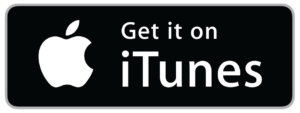Creative queen, avid book-lover, and self-proclaimed tree-climber, Mattie is one of our star in-house copywriters. She’s known for her keen talent for writing words that sell and en point brand voices for clients with that just-perfect human touch. While she has a chameleon-like ability to write for all sorts of mediums, Mattie has a “thing” for websites and a contagious fascination with UX.
I sat down with Mattie to learn where she draws inspiration and her perspective on marketing in the modern world.
What’s your official job title?
I’m a copywriter here at Ptex.
I know you’re a voracious reader. What made you fall in love with reading and language?
It started with my mom. She has a masters degree in English literature and a minor in theater. She’s really a character. When she read us bedtime stories, every character in the story had their own voice—like, you know, Morris the Moose had a very deep, scratchy voice—and it made the stories come alive.
She also taught us how playful and fun language could be. If we said something like, “Can you put on my socks” she would say, “No, they’re way too small for me!” So early on, I fell in love with the words and the infinite possibilities within language. There can be so much meaning packed into each word and sentence. You can start a sentence or a paragraph one way and end up somewhere completely unexpected. A great example of this is the comedian Emo Philips.
Never heard of him. Who is he?
He’s one of my favorite comedians. He uses something called “paraprosdokians,” which is a type of wordplay where the end of a sentence is totally unexpected and makes you reframe or reinterpret an earlier part. Some of his famous ones: “I ran three miles today. Finally I said, ‘OK, fine, lady, take your purse!’” Or, “So, I pleaded guilty on advice of the lawyer, which is the last time I ever listen to a prosecuting attorney.”
That’s hilarious. Now I understand your great sense of humor 😉 So when did your love of words and reading turn into a love of writing?
I was writing fiction from a young age. I had my first story published when I was 10 years old in the local Toronto library circular, and I remember how exhilarating and inspiring it was to see my story in print. It motivated me to keep writing and sending my work to publications. Soon after, I had a poem published in an anthology, and I had an article published by Horizons, a Jewish magazine, when I was 14. Then I had my first novel published when I was 17.
Wow, that’s impressive. How did that come about?
During high school, I was often bored in class, so I would sit in the back and write stories in my notebook. I have a unique, wacky fiction style, kind of outrageous, very dialogue-based, so I didn’t know if anyone would publish me. I saw an ad for a publishing house, Israel Bookshop, asking for submissions, so I sent in one of my manuscripts. They got back to me a few months later telling me they wanted to publish it. I was over the moon.
When did your interest turn from writing fiction to writing for businesses?
Honestly, until a few years ago, I didn’t know that there was such thing as copywriting. My dad, who’s a very practical person, told me, “You’ll never make money as a writer.” So I sort of gave up on my dreams of writing professionally and went to school for accounting and finance. But needless to say, I was completely miserable.
Then, someone I knew who was starting an Amazon business asked me to write up a few listings for them. Lucky for me, they didn’t know writing fiction and writing Amazon listings are as different as night and day. Even though it was out of my comfort zone, I took the job. Turns out, I was really good at it. And I had a blast. And I was making money writing—which for me was living the dream.
How did you end up working for Ptex?
Fast forward a couple of years. I was looking for a job and interviewed at a few places, but none of them were the right fit. Out of the blue, I got a call from a recruiter for Ptex who said they were looking for a copywriter. I went in for an interview—and it was definitely the most interesting and fun interview I’ve ever had. Since speed was a major factor of the position, the creative director I was going to be working for, Avi, gave me a test: I had an hour to brand a pen. I had to write the product packaging, a press release, and interview the pen.
Interview the pen? That couldn’t be a more perfect question for you with your background in creative fiction.
Haha! I definitely had a good time. The whole vibe at Ptex is just amazing and so much fun. We say that we’re soulful creatives—and it couldn’t be a better description. The level of talent is unreal, and it inspires me to constantly push myself, grow, and learn.
What’s something you learned while working here?
I’m learning not to accept the first or most obvious answer, but to dig deep, listen carefully to clients and coworkers and keep an open mind and heart. It’s what makes the outcome not just good, or even great, but special.
Is there a philosophy that guides you in your work?
I think there are essentially two types of marketing: Pull and push.
There’s some marketing that reads like a sales pitch, where they’re overtly trying to convince and persuade you to take a specific action—whether or not the product is really for you. That’s push.
Then there’s the type of marketing where you are in the role of a friend or mentor, helping a customer discover more about a product they might want or need. The customer decides how much they would like to know. This is “pull”—and in the long run, I believe it’s often more effective for businesses who want to cultivate trust and build loyalty.
How does this idea relate to UX?
This philosophy is very tied into UX [user experience]. With web copy, you don’t want to pull your customer’s teeth to get results. Instead, you make sales by directing the site visitor, or “user” as clearly and quickly as possible to the information they need. You ask, who’s visiting this site? What would they need to hear or know about this product or service to make a decision? You speak directly to your target market, and you act as their guide in the decision-making process. Sites that do this are proven to be more effective.
Is there a quote or mantra you live by?
Go for the truth. If you want to sell something, don’t look at what it isn’t. Look at what it is.
I think honesty and truth are the most underrated marketing tools of today. “Truth in advertising” is no longer an oxymoron.
Follow Mattie on Instagram @adventures_with_mat





